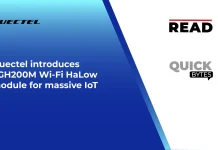ITRI has announced its collaborations with industry and academic partners on making advancements in magnetic memory technology. It has worked with semiconductor manufacturing leader TSMC in the development of Spin Orbit Torque Magnetoresistive Random Access Memory (SOT-MRAM) array chips. Meanwhile, it joined hands with National Yang Ming Chiao Tung University (NYCU) to develop magnetic memory technology that can perform across a wide operating temperature range of nearly 400°C. Both developments are pivotal for industries to move towards next-generation memory technology.
Also Read: NextNav Partners with GCT Semiconductor to Integrate TerraPoiNT Technology
Dr. Shih-Chieh Chang, General Director of ITRI‘s Electronic and Optoelectronic System Research Laboratories, pointed out that the use of lower voltage and current in the memory can lead to higher efficiency. Therefore, ITRI and TSMC developed SOT-MRAM technology that incorporates high write efficiency and low write voltage, achieving a writing speed of 0.4 nanoseconds and a high endurance of 7 trillion reads and writes. The memory also offers a data storage lifespan of over 10 years. In the future, it can potentially be integrated into the advanced processes of embedded memory, which has outstanding prospects in applications such as AI, automotive electronics, and high-performance computing chips.
In the ITRI-NYCU collaboration, both parties have worked to develop high-efficiency operating technology for MRAM and jointly presented the R&D results at this year’s IEEE Symposium on VLSI Technology and Circuits, one of the leading events in the global semiconductor industry. The newly developed Spin-Transfer-Torque MRAM (STT-MRAM) adopts ultrathin composite films and magnesium spacers to boost writing speed, reduce latency, minimize writing current, and improve endurance. The multi-functional magnetic memory has optimal data access performance and stability across a wide operating temperature range between 127°C and -269°C. This is the first of its kind to pass verification tests and will offer enormous potential for applications such as quantum computers and aerospace.
ITRI will continue to develop forward-looking semiconductor technology and present innovative solutions to address market needs. Under its 2030 Technology Strategy and Roadmap, the Institute seeks to collaborate closer with industry and academia in intelligentization enabling technologies, which will promote industrial upgrading and cross-sector cooperation and boost new business opportunities.






